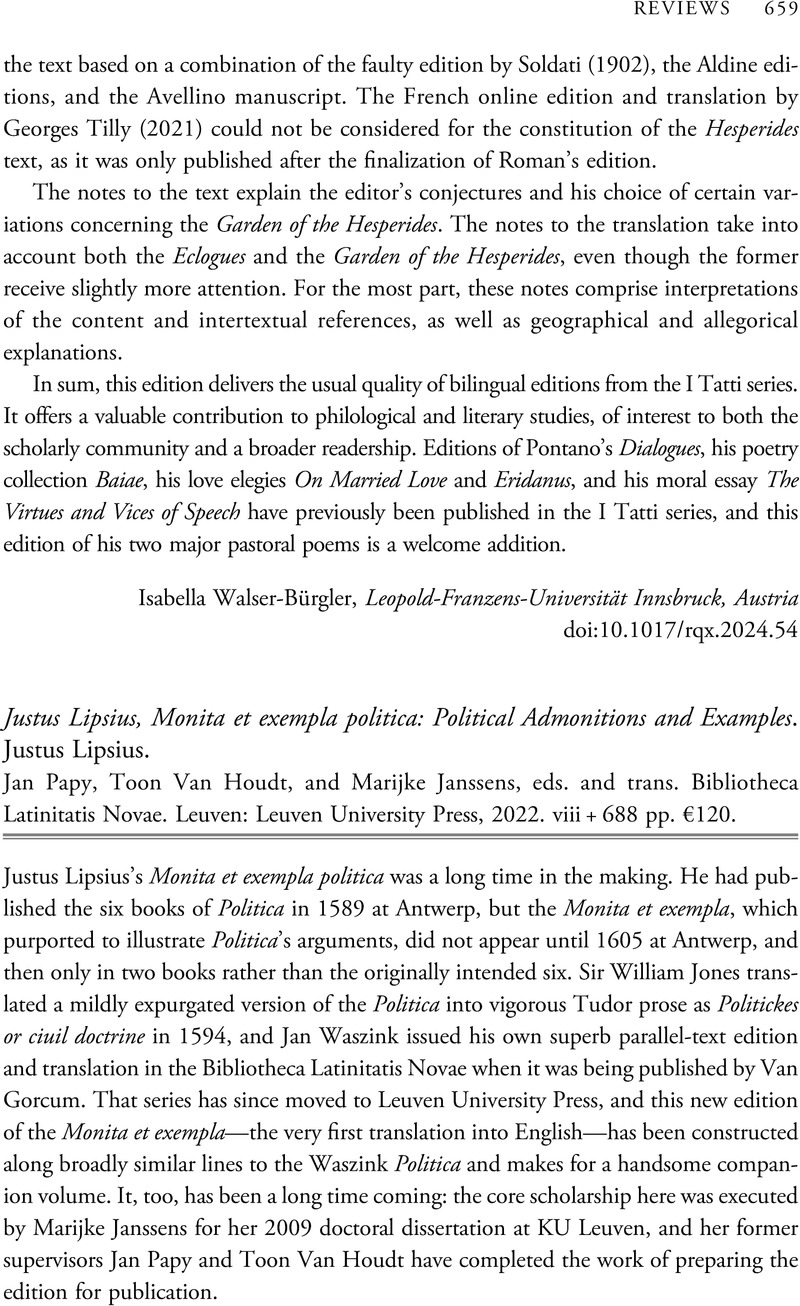No CrossRef data available.
Article contents
Justus Lipsius, Monita et exempla politica: Political Admonitions and Examples. Justus Lipsius. Jan Papy, Toon Van Houdt, and Marijke Janssens, eds. and trans. Bibliotheca Latinitatis Novae. Leuven: Leuven University Press, 2022. viii + 688 pp. €120.
Review products
Justus Lipsius, Monita et exempla politica: Political Admonitions and Examples. Justus Lipsius. Jan Papy, Toon Van Houdt, and Marijke Janssens, eds. and trans. Bibliotheca Latinitatis Novae. Leuven: Leuven University Press, 2022. viii + 688 pp. €120.
Published online by Cambridge University Press: 11 November 2024
Abstract
An abstract is not available for this content so a preview has been provided. Please use the Get access link above for information on how to access this content.

- Type
- Review
- Information
- Copyright
- Copyright © The Author(s), 2024. Published by Cambridge University Press on behalf of Renaissance Society of America



